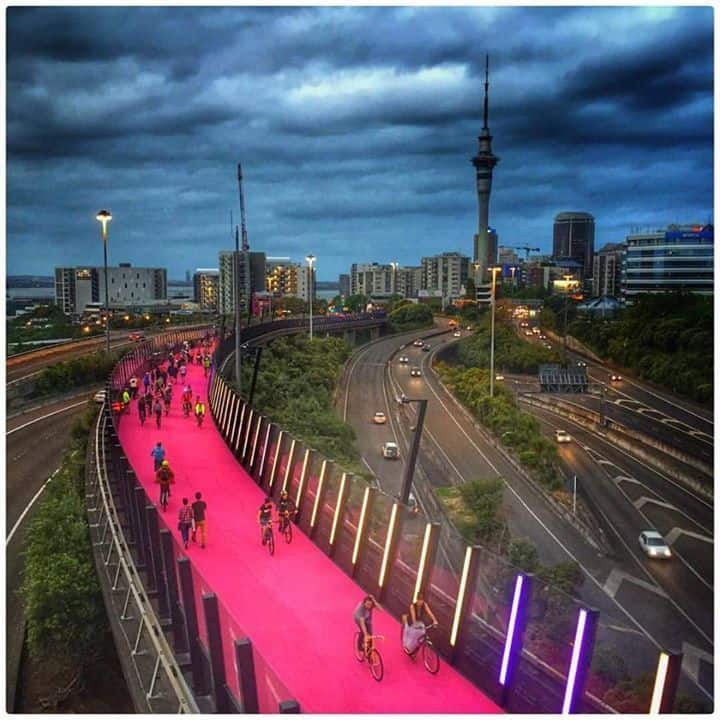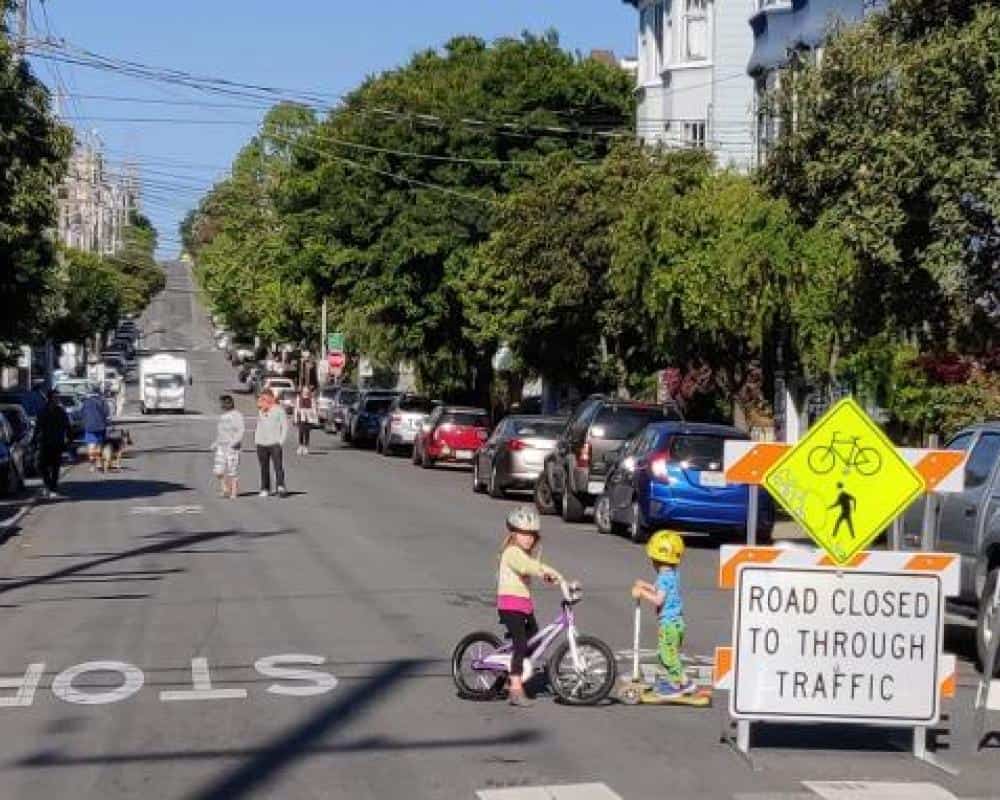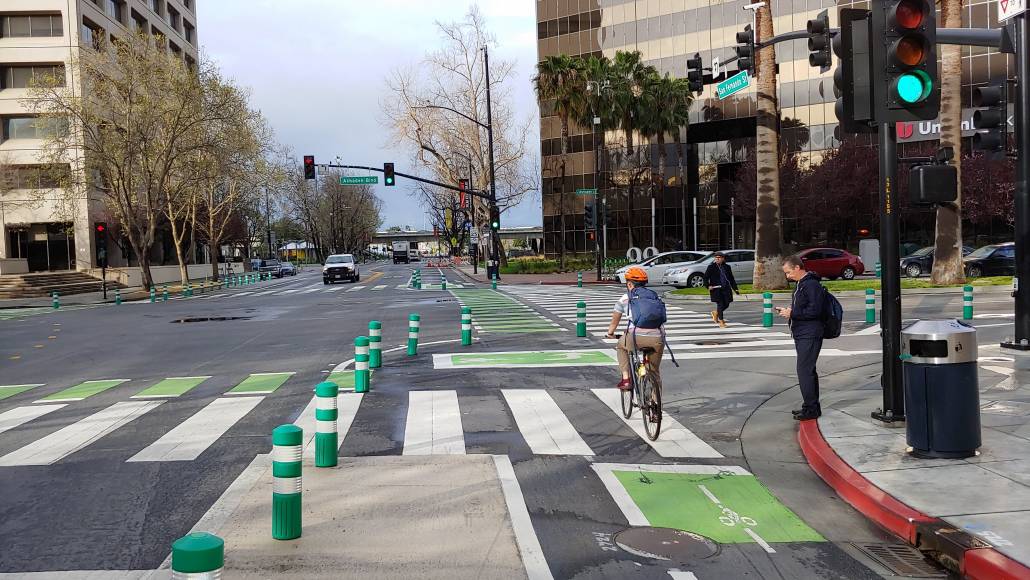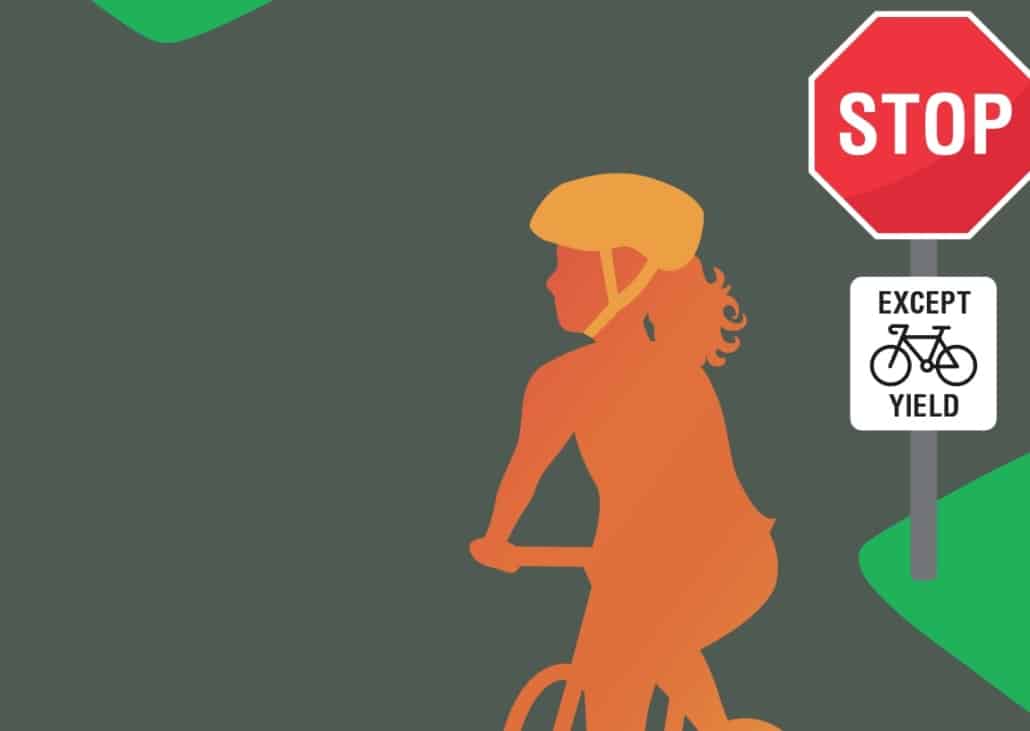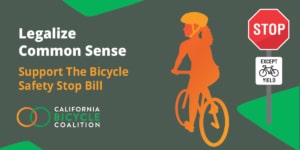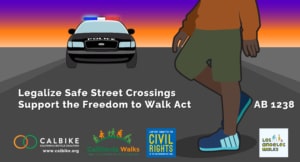Two more studies show stop-as-yield works. Why isn’t there a bill in California?
A few weeks ago, we wrote about two studies showing bicycle safety stop, or stop-as-yield, laws are safe for all road users. Another study released in December 2024 by the National Highway Traffic Safety Administration (NHTSA) has come to the same conclusion. And yet another study from researchers at UC Berkeley’s Institute for Traffic Studies found no correlation between crash risk and the implementation of stop-as-yield laws.
Stop-as-yield allows people riding bikes to treat stop signs as yields and roll through without coming to a complete stop if they have the right of way and there’s no other traffic. Many bike riders already do this because it’s a logical way to conserve momentum on a vehicle powered by human effort. Stop-as-yield laws codify this common way of riding, setting clear expectations for all road users and reducing conflicts at intersections. Since the first such law was passed in Idaho in 1982, stop-as-yield is often called the Idaho stop. Despite this long history elsewhere, stop-as-yield for bike riders remains illegal in California.
Validating the safety of stop-as-yield
The NHTSA study follows a fact sheet released by the agency in 2023 supporting the safety of stop-as-yield laws. The study analyzed crash records in urban areas in eight states where stop-as-yield is legal and used statistical models to estimate monthly crash rates.
The evidence showed that stop-as-yield laws correlated with lower crash rates and didn’t increase the number of crashes involving children. These laws don’t affect the severity of bike rider crash injuries. The study also showed that stop-as-yield laws don’t lead to more reckless behavior by bike riders and could lead to more people getting around by bike.
The researchers found that the built environment was a bigger factor in collisions involving bikes than socioeconomic factors. Safe infrastructure is essential to preventing bicyclist injuries and fatalities. However, the study found a disproportionate number of Black bike riders were crash victims, a finding that highlights the need for further research.
The UC Berkeley study used similar data, parsing crash statistics to see if crash rates went up or down after stop-as-yield was legalized in several states and comparing that data with national and state crash trends. The research found that allowing bike riders to treat stop signs as yields didn’t affect safety one way or the other. Since it makes bike riding easier, that’s an argument in favor of stop-as-yield.
So, if stop-as-yield laws make bike riding more appealing and reduce crashes, why can’t California pass this law? It’s complicated.
California’s twisty road to bicycle safety
California has seen bills to legalize stop-as-yield or safety stop introduced several times, and the legislature passed it in 2021, but the governor vetoed it. This year, even as Nevada proposes a stop-as-yield law and other West Coast states have recently enacted similar laws, CalBike has not found a legislator interested in introducing a bill this session.
One of the factors that stopped California’s stop-as-yield bills has undoubtedly been concerns about rising rates of traffic violence. Despite mounting evidence showing the safety of these laws, it remains difficult to convince law enforcement and legislators that allowing bike riders to treat stop signs as yields won’t increase fatalities.
Another complicating issue in the last couple of years is the steep rise in the popularity of e-bikes and, unfortunately, illegal e-motorcycles marketed as e-bikes and sold to underage riders. That, coupled with driver-caused fatal crashes and the resulting anti-e-bike hysteria in several California cities, has led to a rising public perception that bike riders are reckless. Why would we want to give these dangerous lawbreakers free rein to run stop signs?
A final roadblock is Governor Gavin Newsom. After his first veto, the author ran the bill again and it looked likely to pass the legislature once again. She pulled it at the last minute, probably because of a threatened gubernatorial veto. We may have to wait for our next governor for stop-as-yield to become law in California.
However, you never know. We’ve seen Governor Newsom move from a veto one year to signing a bill the next. CalBike will continue to push for a California stop-as-yield law. We’ve seen how perceptions can change over time with continued education and campaigning, and we won’t give up on this worthy cause.

